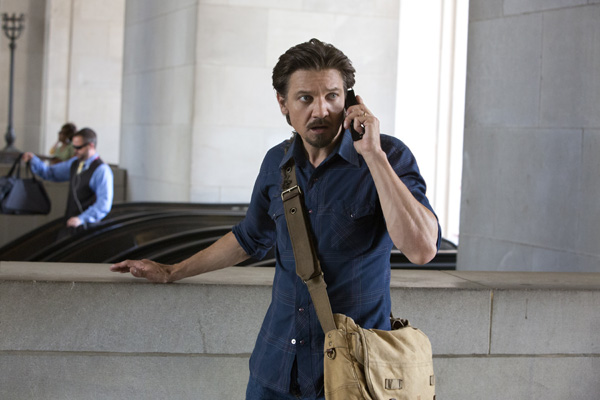Many people start out in their chosen professions with the idea that they will effect some positive change in the wider world. Once you’re in the system, though, you pile up obligations, have too much to lose, and the idea of change is somewhere between absurd and terrifying. Kill the Messenger, a new investigative thriller starring Jeremy Renner, vividly suggests how, even in the high-minded field of investigative journalism, things are much too far-gone for real change to happen.
The film tells the true story of San Jose Mercury News journalist Gary Webb (played with intensity and abandon by Renner) piecing together the case of how the Central Intelligence Agency used money from Nicaraguan cocaine cartels to fund paramilitary operatives, the Contras, to fight against the Sandinista government in Nicaragua. (The film opens with amusing highlights of every president since Nixon beating the drums for the war on drugs.) But evidently even drugs are not as bad as allowing people to engage in free elections that may lead to socialist governments.
The film tracks the evolution of Webb’s story, from the first mysterious phone tip to a meeting with billionaire Los Angeles crack cocaine entrepreneur Ricky Ross (played, of course, by Michael Kenneth Williams), and down to Nicaragua to meet with drug kingpin Norwin Meneses (Andy Garcia). High-ranking government officials pop up to assure Webb he’s on the right track, but it’s too dangerous for them to go on the record (Michael Sheen and Ray Liotta, in small but key roles). We see how the knowledge that Webb is right, without being able to prove it, steadily causes him to come apart at the seams, as would happen to anyone in his shoes.
There are effective scenes where shadowy figures close-in on Webb, threatening his family’s safety in a way reminiscent of the excellent Russell Crowe film The Insider. But this is creepier. Crowe was going up against Big Tobacco, while Webb was facing the CIA.
Despite the intricate details of the case being presented, the film does a good job of showing Webb’s family life in some depth. His wife, Susan (Rosemarie DeWitt), manages to be warm and reasonable in a role that could’ve been a one-dimensional wet blanket. The film excels at showing how, when his career begins spiraling out of control, he focuses on making sure his precocious son is proud of him, as a way of keeping his true north.
As poorly as the U.S. government comes off in the film, journalism gets the biggest black eye. We’re shown how the industry exists first and foremost as a way for its ranks to live comfortable lives and support their families. This is the catch-22 of American journalism—writers should pursue ugly truths that shake states out of unethical directions, but if matters are shaken up too much, they might end up missing mortgage payments.
There is a great scene where Webb calls out Jerry Ceppos (Oliver Platt), head of the Mercury News, for siding with The Washington Post, whose upper level editors include former CIA agents and which used its considerable resources to discredit Webb and his story. As portrayed here, Ceppos’s goal is not to protect his employee but to preserve his future ability to be an attractive hire for The Post or The New York Times by building a reputation as someone who can smooth things out to ensure the ship of state and big newspapers keep sailing along efficiently and profitably.
Mary Elizabeth Winstead plays Anna Simons, Webb’s editor, who encourages him to push forward with his controversial story, and she’s thrilled for him when it first comes out and makes a huge splash. But as the film goes on and the consequences of exposing the unspeakable acts funded by U.S. tax dollars become apparent, even she inevitably freezes Webb out. The film doesn’t shy away from Webb’s flaws; the consequences of infidelity are portrayed in a painful scene of reckoning. It’s also pointed out that his original coverage, while tight, was not perfect, nor designed to withstand the Zapruder-level scrutiny it received.
Victor Hugo may have been right to say that armies cannot stop an idea whose time has come. But American capitalist interests have created something Hugo could never have dreamed of, a society in which there is little context for ideas to have meaning or value. Gary Webb’s story is a chilling reminder that being right doesn’t necessarily count for all that much.







Leave A Comment